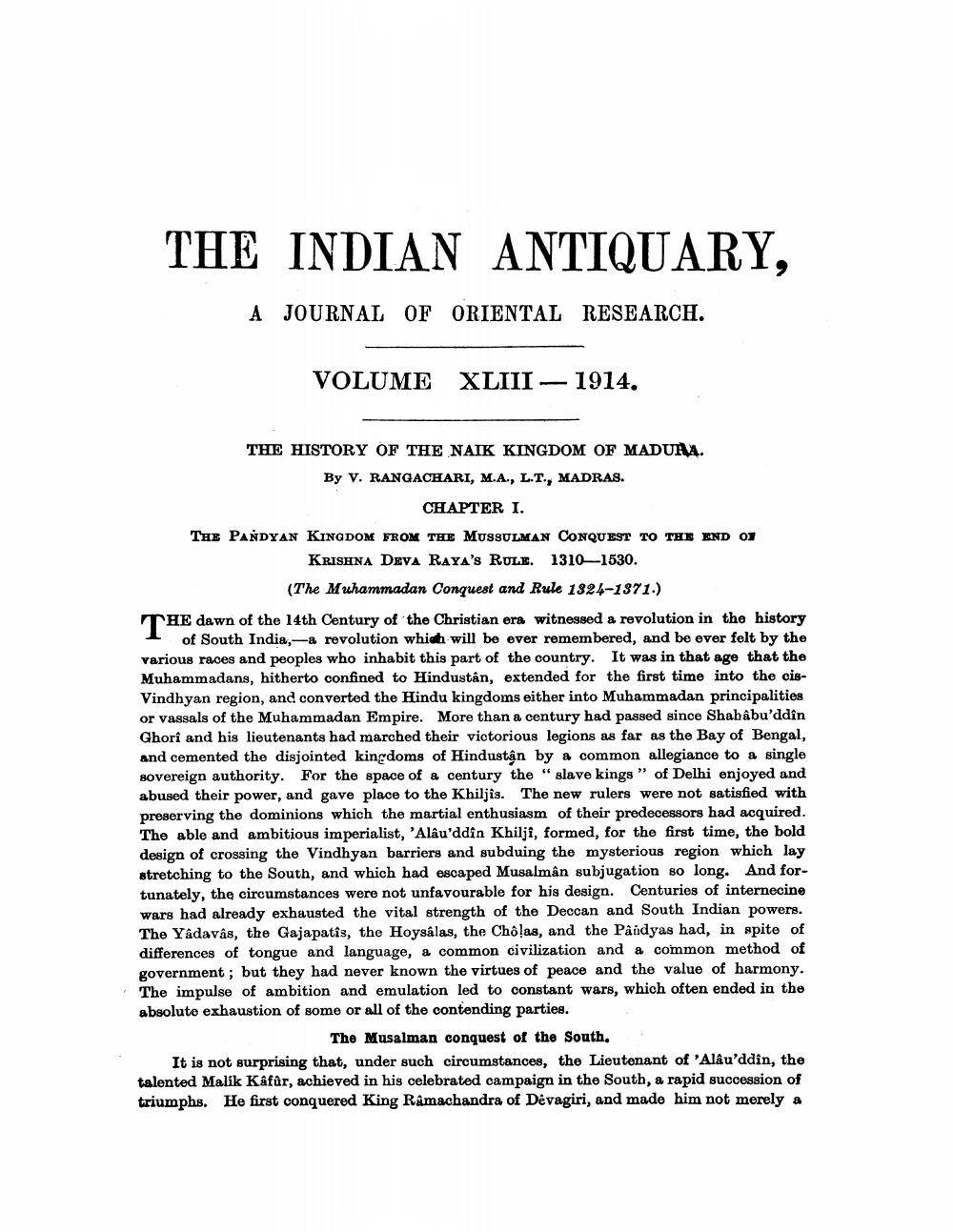________________
THE INDIAN ANTIQUARY,
A JOURNAL OF ORIENTAL RESEARCH.
VOLUME
XLIII- 1914,
·
THE HISTORY OF THE NAIK KINGDOM OF MADURA.
By V. RANGACHARI, M.A., L.T., MADRAS.
CHAPTER I.
THE PANDYAN KINGDOM FROM THE MUSSULMAN CONQUEST TO THE END OF KRISHNA DEVA RAYA'S RULE. 1310-1530.
(The Muhammadan Conquest and Rule 1324-1371.)
THE THE dawn of the 14th Century of the Christian era witnessed a revolution in the history of South India,-a revolution which will be ever remembered, and be ever felt by the various races and peoples who inhabit this part of the country. It was in that age that the Muhammadans, hitherto confined to Hindustân, extended for the first time into the cisVindhyan region, and converted the Hindu kingdoms either into Muhammadan principalities. or vassals of the Muhammadan Empire. More than a century had passed since Shahâbu'ddîn Ghori and his lieutenants had marched their victorious legions as far as the Bay of Bengal, and cemented the disjointed kingdoms of Hindustan by a common allegiance to a single sovereign authority. For the space of a century the "slave kings" of Delhi enjoyed and abused their power, and gave place to the Khiljis. The new rulers were not satisfied with preserving the dominions which the martial enthusiasm of their predecessors had acquired. The able and ambitious imperialist, 'Alâu'ddin Khilji, formed, for the first time, the bold design of crossing the Vindhyan barriers and subduing the mysterious region which lay stretching to the South, and which had escaped Musalmân subjugation so long. And fortunately, the circumstances were not unfavourable for his design. Centuries of internecine wars had already exhausted the vital strength of the Deccan and South Indian powers. The Yâdavâs, the Gajapatis, the Hoysâlas, the Chôlas, and the Pandyas had, in spite of differences of tongue and language, a common civilization and a common method of government; but they had never known the virtues of peace and the value of harmony. The impulse of ambition and emulation led to constant wars, which often ended in the absolute exhaustion of some or all of the contending parties.
The Musalman conquest of the South.
It is not surprising that, under such circumstances, the Lieutenant of 'Alâu'ddîn, the talented Malik Kâfûr, achieved in his celebrated campaign in the South, a rapid succession of triumphs. He first conquered King Ramachandra of Devagiri, and made him not merely a




